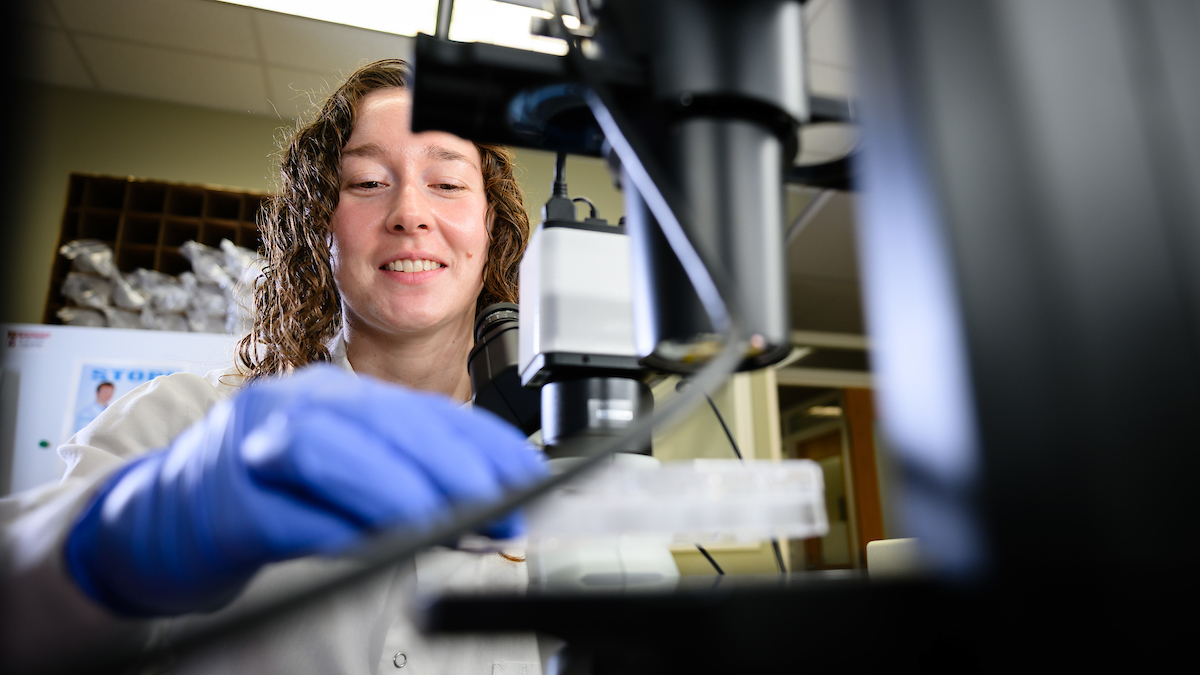One Medicine Focus of CCMTR Investigations
By Jason deBruyn
Triangle Business Journal
The day when humans routinely use the same medicines as their pets might be approaching.
Blazing the trail toward that end are researchers at North Carolina State University who focus their studies primarily on animals but are finding an ever-increasing amount of medical breakthroughs that might work for humans.
Thanks to a growing market for pet medicines, pharmaceutical companies are taking note. In 2008, for example, animal-health product sales totaled $6.7 billion, according to the Animal Health Institute. Novartis has a "Leadfinder Program" in which scientists from Novartis Animal Health work with research and development teams at universities, including N.C. State.
But research into medicines typically travels along parallel, not common, tracks. N.C. State’s College of Veterinary Medicine is trying to change that by bringing animal and human pharma research onto a single track.
The university, in fact, has adopted the concepts of "One Health" and "One Medicine" as a kind of slogan through which they view medical advancements – not in terms of humans or animals, but humans and animals.
On its website, the college quotes 19th century German Dr. RudolfVirchow: "Between animal and human medicine there is no dividing line – nor should there be. The object is different but the experience obtained constitutes the basis of all medicine" (quoted by Joseph V. Klauder in the New England Journal of Medicine in 1958).
To doctors of veterinary medicine such as Gregg Dean, this just makes sense. "It’s an obvious thing to vets because we deal with different species all the time," he says. "For us, humans are just another species."
Dean is working on a vaccine he believes could prevent the spread of HIV in humans. He stumbled across the possibility only because he attended a seminar with an expert in lactobacillus, found commonly in yogurt or cheese. Dean is studying feline immunodeficiency virus, which has a striking similarity to the virus found in humans. He earned a National Institutes of Health grant because of the implications for humans and is hopeful his developments could exploit attributes of the bacteria to create a HIV vaccine that is both safe for humans and cost -effective to produce.
Healthier animals would mean healthier humans. Of the 1,461 diseases recognized in humans, about 60 percent are due to multi-host pathogens characterized by their movement across species lines, according to the American Veterinary Medical Association. Through the past three decades, 75 percent of emerging human infectious diseases have been zoonotic, meaning they can be spread from animals to humans and vice versa.
"Humans are biologically very similar to other mammals," says Novartis spokeswoman Julie Masow. "Of course there are minor differences, but these are far outweighed by the remarkable similarities. The differences can give important clues about diseases and how they might be treated."
At N.C. State, professors impress on their students the value of a cross understanding of health in humans and animals. "Don’t forget, N.C. State has. a medical school," College of Veterinary Medicine director of media relations Dave Green says in reference to the vet school.
Dean and other veterinarians try to reach out to doctors of humans to educate them about the potential gains they could make together, Dean says. But the hurdle is a big one. "The NIH has been trying to break down those silos," he says, adding that most grant applications must show some sort of cross study to be accepted.
"One grant, one investigator. That approach just doesn’t fly anymore," he says.
Dean and his colleagues still have a long way to go – his HIV vaccine has crossed only one of four hurdles – but he is confident medical research will someday reach the tipping point.
March 26, 2011
Dr. Gregg Dean is
a professor of immunopathology in the CVM Department of Molecular Biomedical Sciences and the director for Center for Comparison Medicine and Translational Research. The CCMTR is a community of more than 100 scientists from five NC State colleges. These investigators are involved in collaborative ”One Health” studies with government, private, and other academic researchers to advance knowledge and practical applications that improve the health of animals and humans.


